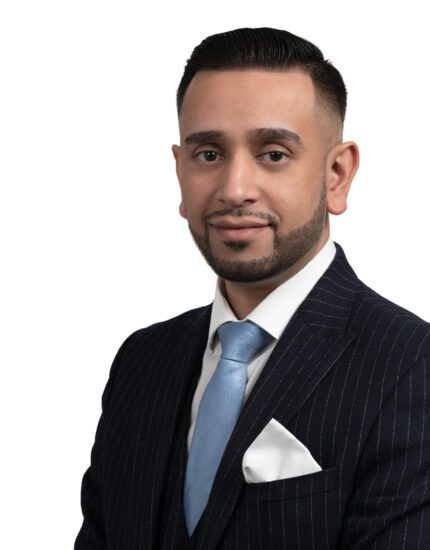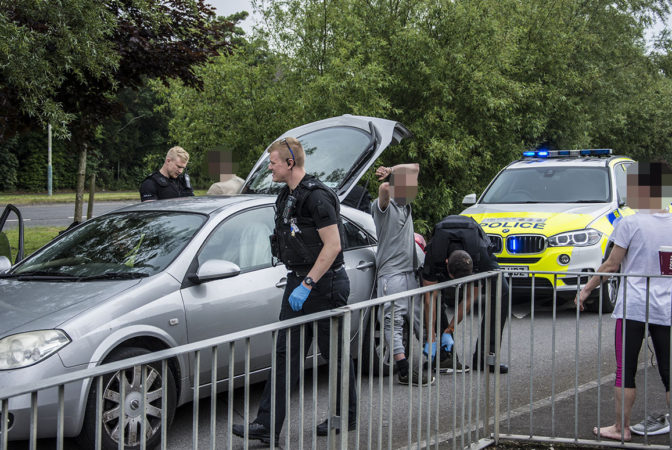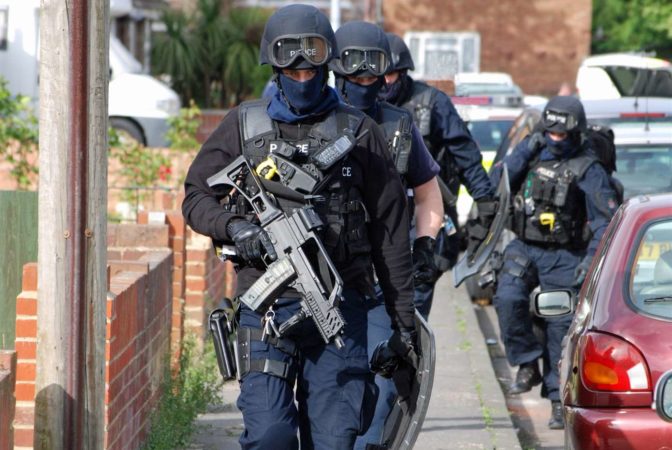If you stand accused of terrorism charges, you are probably extremely anxious about what might happen if your case goes to trial, how long you might be sent to prison, and how your life will be different afterwards (even if you are ultimately acquitted).
In this article, we provide you with comprehensive information on terrorism charges and how to get help from terrorism solicitors in London.
News stories of recent decades have been tainted with the brutality and violence of terrorism, and legal systems around the world have adapted to punish those involved with these crimes ever more harshly than before. This is owed not least to the fact that with advances in technology come even more sophisticated ways for terrorists to unleash harm and fear upon populations, whether through complex chains of violent explosions in cities, massive cyber-attacks across important public networks, or sophisticated false information campaigns on social media.
Crimes relating to terrorism might include:
- Terrorist fundraising
- Possession of articles for terroristic purposes
- Membership of proscribed organisations/terrorist groups
- Hawala banking
If you or someone you care about has been accused of involvement in one of these activities, it is imperative that you get advice from a specialist terrorism solicitor as soon as you are able. Given the nature of terrorism charges and the immense implications they can have for someone’s personal and professional life, getting the right advice from the right solicitor early on could make all the difference.
Have you been arrested or charged with a terrorism offence?
Acting quickly and with the right information is key to responding successfully to any terrorism accusation, and to minimising the impact that such allegations might have on your personal and professional lives. Not only that, but knowing what to do if you are involved in any way, shape, or form in a terrorism investigation is critical to protecting your legal rights and ensuring that you are not subject to illegal police practices.
Understandably, if you or someone you care about is facing such charges, you will have a lot of questions and concerns about what might happen next. Get in touch with an experienced terrorism solicitor without delay if you find yourself in this situation.
What should I do if I am arrested or charged with a terrorism offence?
As far as possible, you need to remain calm if you are accused of involvement in terrorism. This is an extremely difficult thing to do for anyone, but it is crucial that you maintain your composure and think as clearly as possible so that you can lodge an appropriate defence with a strong likelihood of success.
Contact a specialist terrorism solicitor with a proven track record of successfully defending complex cases as soon as you are able to and explain your case and any involvement in frank and honest terms so that your solicitor is positioned to help you as best they can. Even the smallest details can be important in serious cases like these, so try to remember everything and write down your thoughts and memories in advance of talking with the solicitor.
If you are arrested and taken to a police station, it is your legal right to refuse to answer any questions before you see a solicitor. While you do have access to a duty solicitor at the station, it is better to obtain the advice of an experienced terrorism solicitor who knows exactly how to instruct you. Terrorism cases are treated very differently from other crimes in key respects, so it is imperative the advice you receive is tailored specifically to terrorism charges.
What types of actions are considered a terrorism offence?
Terrorism can take numerous forms nowadays, not least because technology permits greater access to people and public systems in ways it has not previously. As such, the range of actions that might constitute a terrorism offence are very broad. They could include:
- Arranging meetings of proscribed organisations and advertising for people to attend them with the intention of having them join the group.
- Raising donations for terrorist purposes, which could include anything from printing propaganda leaflets to buying supplies to make explosives.
- Preparing materials for use in terror acts, such as collecting kidnapping supplies, possessing of offensive weapons, creating maps of public spaces or buildings, or rigging cars with explosives.
- Detonating bombs in crowded places with the intention of killing or maiming innocent victims.
What happens during a terrorism investigation?
Anyone accused of terrorism can expect to be subject to extensive questioning, searches, and other investigative measures.
In the first instance, you are likely to be held for questioning at a police station. Usually, the police can only hold you for 24 hours without charge (or up to 96 hours if you are suspected of a more serious offence, like murder), but with terrorism offences, the police can hold you for up to fourteen days without charge.
This reflects the potential severity of any terrorist attack and how many people it could affect if it goes ahead. You are likely to be questioned by specialist officers who are trained in questioning techniques especially relevant to subjects like religion, politics, and biases that usually lead to terroristic events.
While you are being questioned, teams of officers are likely to investigate your home, workplace, vehicles, and electronic devices to try to find out as much information as they can about your activities and plans. Your bank account could also be frozen and other assets seized while the investigation is underway.
As with other criminal investigations, having the right advice from a qualified terrorism solicitor can make this process much easier. Not only does the right solicitor give you advice every step of the way, but they also give you an opportunity to put preventative measures in place to protect your family, friends, professional life, and other important areas while you are held for questioning or are in custody awaiting trial.
Can the police search my home for a terrorism offence?
The police will almost certainly search your home if you are accused of involvement in terrorism. They will be looking for any evidence that links you to the specific crime thought to have been committed, or that links you to a proscribed group (which may prove your wider involvement in such activities).
No area is off limits to the police in these circumstances, which means they may even search areas of your home that are materially not ‘yours’, such as your children’s bedrooms or your partner’s home office.
Similarly, your electronic devices will be seized and taken for investigation, which may be forensic if you have deleted materials from the devices in an attempt to hide information. Specialist teams are able to extract information from hard drives and other memory formats even if the items have been ‘deep-cleaned’ from the device.
Could I go to prison for a terrorism offence?
Terrorism offences are punished very severely in England and Wales, and public pressure continues to mount on the judicial system to hand out harsh punishments to those found guilty of involvement in terrorism offences. Accordingly, a prison sentence is a highly likely outcome of any terrorism investigation and trial if you are found guilty.
The same applies even if you are ultimately not found guilty of the terrorism offence itself, but of a lesser crime that is somehow connected. So, for example, if you were not found guilty of terrorism offences but it was proven that you made a homemade bomb and set it off knowing members of the public would get hurt, you may still be charged with murder or attempted murder, or some other connected offence, which could – and likely would – involve a prison sentence.
What is the typical sentence for a terrorism offence?
The sentence you will be given if found guilty of a terrorism offence varies considerably depending on what exactly you are found guilty of. In general, however, prison lengths for terrorism offences are considerable, which reflects how seriously the government takes these offences. For being a member of a proscribed organisation, for example, the sentencing could be as long as 10 years’ imprisonment. For terrorist fundraising, the sentence could be up to 13 years’ imprisonment, but may be extended if there are factors that aggravate (make worse) the offence, such as targeting a specific ethnic group. If people are killed as a result of your terroristic activities, you could readily receive a life sentence.
What defences can be used for a terrorism offence?
Defending terrorism charges can be a mind-bogglingly complex task, which makes finding the right terrorism solicitor perhaps the most critical aspect of building out your defence.
However, there are a number of defences that might apply to your situation, if you meet certain characteristics. These ‘general defences’ apply to you as the defendant as opposed to the crime itself and might result in you being given a lesser sentence or your case dismissed altogether.
General defences to terrorism charges include:
- Duress. If you were forced by a set of circumstances to commit a terroristic offence (for example, if you were blackmailed and threatened with some highly undesirable consequence if you did not send money to a proscribed group), you may be able to rely on the defence of duress.
- Self-defence. If you committed a particular terrorism offence in order to protect yourself or someone else, or the property of yourself or someone else, you may be able to rely on self-defence. This could be a difficult defence to make out, but if you were, say, forced to join a terrorist group because otherwise your family would be killed, you might have a defence.
Many other defences could apply depending on the nature of the actions or inactions that led to your arrest, so it is always best to consult a specialist legal representative prior to deciding on how to argue your case in court.
What mitigating factors may be considered for a terrorism offence?
Given the severity of terrorism charges, courts are not especially willing to recognise mitigating factors. But this does not mean it is not worth trying to put them forward if they do genuinely apply in your case. If you have been found guilty, mitigating factors might help to reduce any sentence you are given.
These could include:
- You having mental health problems that made joining a terrorist group an attractive prospect for you (for example, mental health issues that come from being abandoned by your family and finding acceptance and purpose in such a group).
- This being your first offence and you otherwise having a clean record.
- You having taken steps to remove yourself from such a group upon discovery of their plans/intentions.
- You making amends where possible, or issuing apologies.
- You taking steps to prevent any planned action before it actually happened, having regretted your involvement in planning such.
Will a conviction for terrorism offences go on my criminal record?
Undoubtedly, yes. Any conviction for terrorism offences is seen as a particularly serious and severe crime, and accordingly law enforcement authorities will do as much as they can to ensure that your conviction is alerted to necessary parties when appropriate. Such instances could include if you are applying for a job and require a Disclosure and Barring Service (DBS) check or you are called into questioning for another offence in future (in which case, the police could anyway check the Police National Computer (PNC) for such information).
Sound terrorism convictions are never removed from such records, so will stay there for life and be accessible to authorised parties as necessary, even if significant time has passed and you have served any relevant prison sentences.
What are examples of terrorism offences?
- Preparing an explosive device and planting it on a school bus, intending for children to get hurt.
- Raising money for a terrorist group by embezzling funds from your workplace.
- Distributing terrorist propaganda on online groups and inciting people to commit violent acts.
How can Stuart Miller Solicitors help?
If you have been charged with a terrorism offence, you need to get information on how to proceed as soon as possible. Getting reliable and non-judgemental advice from solicitors who are experts in this area is the only option if you want to secure your defence early on.
The team at Stuart Miller Solicitors are highly experienced in the area of terrorism offences and have successfully defended individuals in very high-profile cases (many of which were able to be kept private due to the nature of the offences, which ultimately protected those accused from public backlash). Arrange a no-obligation consultation today to get advice on what to do next.
Why choose Stuart Miller Solicitors?
Standing out as the leading terrorism solicitors in London, Stuart Miller Solicitors are a reputable firm of highly experienced legal experts. Whatever stage of the process you are at, and whatever you have been accused of, you can rely on us to take the time to understand your case and prepare a robust defence.
What will happen when I instruct terrorism solicitors?
Once you have arranged your no-obligation consultation to talk through your case and work out your immediate next steps, your solicitor will work with you to create a bespoke defence strategy that draws upon decades of experience defending terrorism cases.
No two cases are alike, but by having the team at Stuart Miller Solicitors by your side, you can navigate the investigation and any impending trial process with confidence.
Would you like to discuss your case before instructing us?
Please get in touch with our team today to arrange a consultation so we can walk you through your options. If, understandably, you are hesitant about talking to us, you may do so in complete confidence until we need to take further action on the case. Likewise, if you are not quite ready to go into the full details yet but just need some basic advice on what to do next, you can email us or send us a WhatsApp message 24/7 and we will respond as soon as possible.






